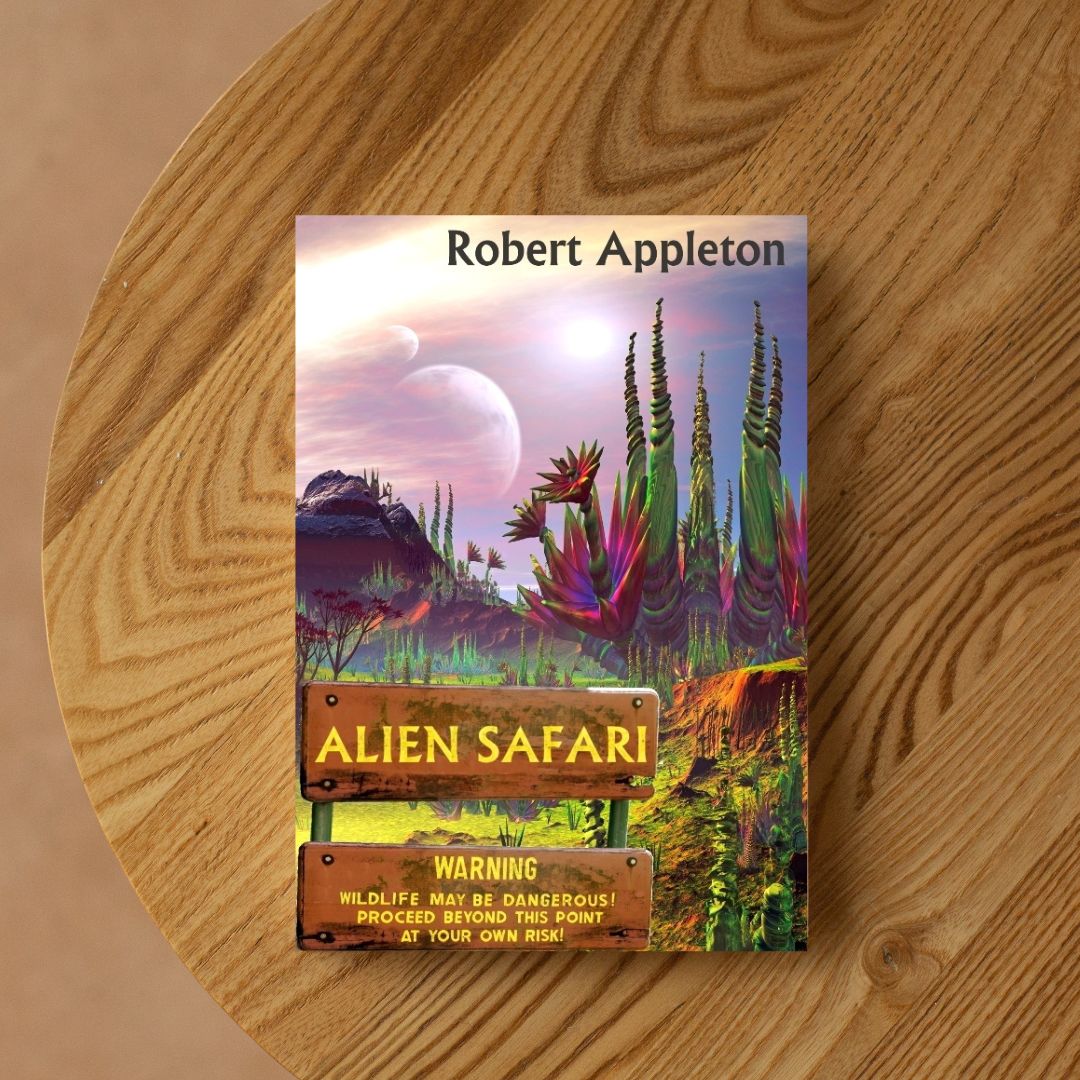My Store
Alien Safari (Alien Safari Series Book 1) - Paperback Edition
Alien Safari (Alien Safari Series Book 1) - Paperback Edition
Couldn't load pickup availability
"Next to impossible to put a book down that so captures the imagination." – ‘VINE VOICE’ Amazon Reviewer ⭐⭐⭐⭐⭐
Warning! Wildlife may be dangerous. Proceed beyond this point at your own risk.
When celebrated Omicron detective Ferrix Vaughn is called in to investigate a deadly breach on Hesperidia, a protected planet full of indigenous wildlife, he doesn't know what to expect. The place used to be a tourist attraction, but the safari tours were discontinued long ago due to rampant poaching. Only a handful of researchers live there now, including Jan Corbija, the young woman who reported the breach.
The deeper Vaughn digs, the more the evidence seems to point to a recent raid on a biotech facility in a nearby system. Whatever was stolen from there, it's attracted the attention of major political players in a time of war across the colonies. Vaughn suspects the secret is on Hesperidia, in the hands of the two fugitives who fled the murder scene. If he wants to get to them first, he's going to need Jan's help. Her Alien Safari tour will have to reopen for this final excursion. But to survive it, they'll both need to face their demons, for a predator far deadlier than man roams the wilds of Hesperidia. And this is its killing season.
This way for the ride of your life.
WHAT READERS SAY:
"Robert Appleton has tapped into his extraordinary imagination and penned a very entertaining story in Alien Safari. I would urge anybody who enjoys a fun story, Sci-Fi, intergalactic wildlife, or a good old shoot 'em up style space opera, to get a copy of Alien Safari today. You will be glad you did." ⭐⭐⭐⭐⭐ -- Readers' Favorite
"Very good story, excellent character development and use, plot unfolds very well, you know the story will end well without knowing how. An excellent detective / mystery story spread across a couple of planets with some high tech equipment and alien artifact and some unusual alien animals and fauna. Not my normal Sci-Fi adventure, but I liked the author's style very much and will look for his other works." ⭐⭐⭐⭐ -- Mini Library Reviewer
"Alien Safari features a world, Hesperidia, that caught my imagination like nothing before." ⭐⭐⭐⭐⭐ - 'VINE VOICE' Amazon Reviewer
"This book ticks all the boxes! The world building is great, and I fitted right into the future scenario without once feeling lost or confused. The descriptions of the tech, aliens animals, and human contrasts are so imaginative, and often beautiful. This is a mystery story, and the plot is paced out well, making the book hard to put down." ⭐⭐⭐⭐⭐ - Author Iseult Murphy
“A highly entertaining, nail-biting book.” ⭐⭐⭐⭐ – Audiobook Reviewer
"The writing flows easily and enjoyably making Alien Safari impossible to put down." ⭐⭐⭐⭐⭐ - Amazon UK
“This was an awesome book.” ⭐⭐⭐⭐⭐ - Amazon Reader
"This was fun from the first page! Original story with strong characters - and an alien dog - on a strange planet full of dangers." ⭐⭐⭐⭐⭐ - Amazon UK
"The writing flows easily and enjoyably making Alien Safari impossible to put down." ⭐⭐⭐⭐⭐ - Amazon Reader
"I loved this book. The tone was amazing, the writing was strong, the characters were full, and the plot/world were well crafted." - Goodreads Review
Share




